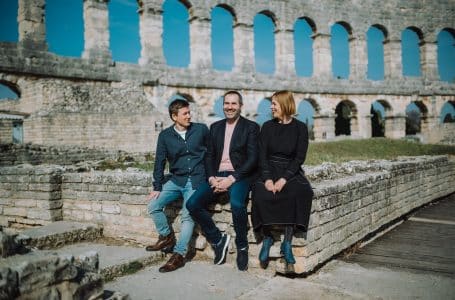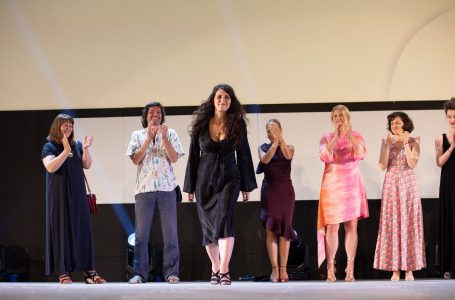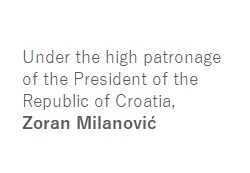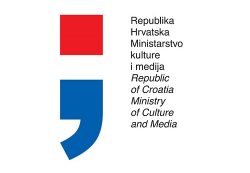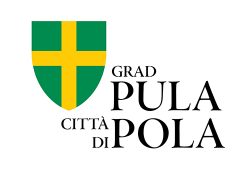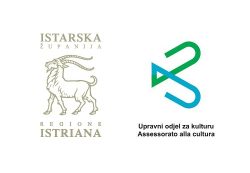Pula Film Festival becoming the most important meeting place of Croatian film and its audience
Third Day of Pula Film Festival Marked by Minority Croatian Co-productions
- News
- 19. July 2022.
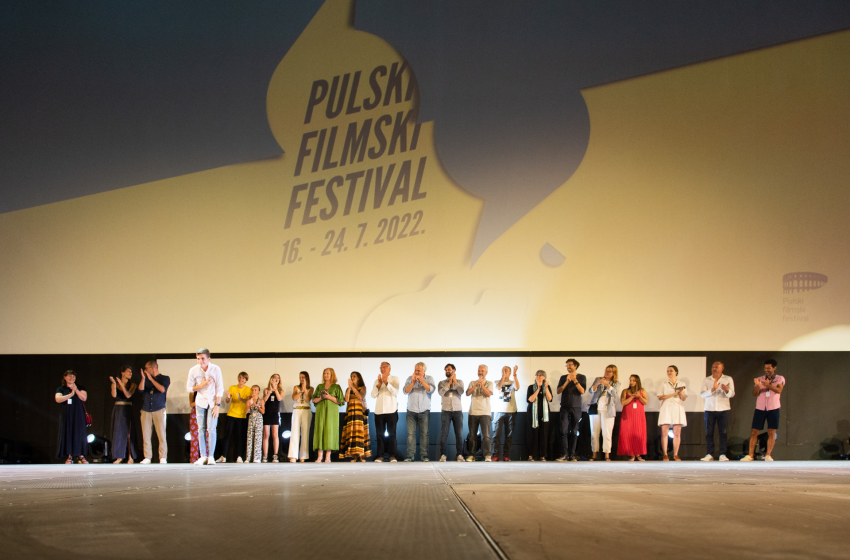
Third Day of Pula Film Festival Marked by Minority Croatian Co-productions
Two films from the International Programme, both Croatian minority co-productions, were screened on the big screen at the Arena on Monday. The first one, How I Learned To Fly, directed by Radivoje Andrić, is a family drama about twelve-year-old Sofija who dreams about a camping trip with her friends, and her first kiss. But she’s forced to spend her summer in a worn-down family house on the island of Hvar with her overbearing grandma Marija and her quirky great-aunt Luce. With no friends or wifi, Sofia’s life on Hvar is hell, but her boredom is undercut by grandma Marija’s peculiar behaviour. Sofija suspects some kind of secret romance is at play, but a closer investigation of grandma’s love life ultimately unearths a long kept family secret. The second film was Being Human Is Not So Bad, directed by Dušan Kovačević, which follows piano professor Milan five years after his best friend, pop star Ranko White, disappeared under mysterious circumstances. Milan decides to solve the mystery and finally discover what happened to White. Failing to get support and understanding from his family and friends, Milan develops a friendship with a stray dog.
The Vedran Šamanović Award, presented in honour of the prematurely deceased Croatian cinematographer and director as the highest recognition to a film artist in any area of filmmaking, in either short or feature film, who has made the most innovative and valuable contribution to Croatian filmmaking, was presented this year to Nicole Hewitt, author of the experimental film Women Minor Speculations, produced by Pangolin Studio.
At the Istrian National Theatre, the film My Mother’s Swedish Heart, directed by Adis Bakrač was screened, as well as short films in the Student Programme. At Kaštel, the film Burning Days, directed by Emin Alper, also a Croatian minority co-production, was screened in the International Programme. The film After the Winter, directed by Ivan Bakrač, was screened at Ambrela Beach in the Dizalica Programme, and Mimi, directed by Darijan Pejovski, was screened at Valli Cinema.
One of the central events of this year’s Industry Programme, the round table Minority Co-productions and Cooperation of Film Centres in the Region, was held at Valli Cinema. It focused on minority co-productions and cooperation of Croatian film centres with those from neighbouring countries and South East Europe, and gathered a number of film professionals who exchanged experiences, plans, and thoughts about strengthening current successful mechanisms and setting up new ones with the goal of increasing the efficiency of the system, especially in terms of the challenge of financing film projects in the countries of the region, the financial situation in Europe and constant efforts to attract film audiences when it comes to films produced nationally. One such initiative is the synchronisation of calls for financing of co-productions so that interested filmmakers in the region would be in an optimal position. The keynote speakers of the round table were Christopher Peter Marcich, CEO of the Croatian Audiovisual Centre, Nataša Bučar, managing director of Slovenian Film Centre, and Gordan Matić, director of Film Centre Serbia. Antonio Beus, president of the board of the Foundation for Cinematography Sarajevo, also spoke at the round table. The round table was organised in cooperation with the Croatian Audiovisual Centre, and moderated by film critic Boško Picula.
The sixth edition of Time Machine 6 was presented at the foyer of Valli Cinema. In cooperation with the Istrian Film Commission and Pula Film Festival, Time Machine 6 is a catalogue of feature films made in Istria. The texts follow the films that were filmed in Istria from the 1940s onwards in chronological order and newspaper articles that were published once a month in the daily Glas Istre from 20 May 2020 to 11 May 2022. As an edition dealing with important, but neglected themes which relate to film art, Time Machine 6, with minimal interventions, brings together original texts to offer the public concerned complete insight into this important branch of production that is not researched enough in our area. The author of the book is Aleksandra Vinkerlić, director of the Istrian Cultural Agency – Istrian Film Commission, and Sanela Pliško is the editor.
Two films in competition in the Croatian Programme will be screened at the Arena tomorrow: The Uncle, directed by Andrija Mardešić, and 4:2, directed by Anđelo Jurkas. The special screening of the documentary film about the legendary composer Ennio Morricone, Ennio, directed by Giuseppe Tornatore, will take place at Valli Cinema. Butterfly Vision, the minority Croatian co-production directed by Maxym Nakonechnyi, will be screened at Kaštel, while A Girl Returned, directed by Giuseppe Bonito, will be screened at Ambrela Beach.
The programmes, as well as the detailed schedule of screenings and all other information can be found on the official webpage of the Festival: www.pulafilmfestival.hr.

